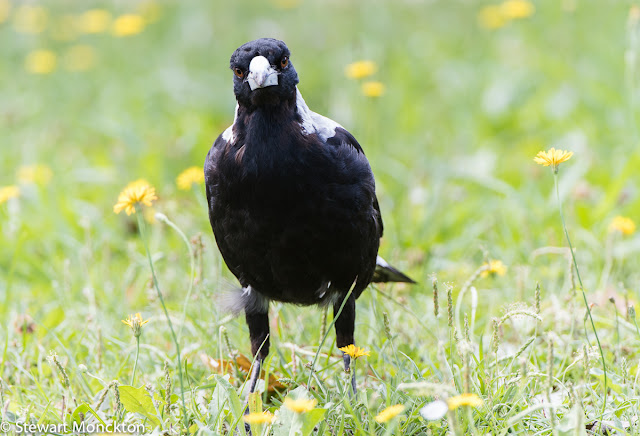The Australian Magpie - or just Magpie - is one of the more visible birds in the area I live in. It would be rare to go for a walk and not see one, or many. There is one street near me where they are particularly common. I suspect that there may be a person who feeds them somewhere in that street.
On one corner you can often see these birds gathering in a group we have named The Squad. Technically these birds are known as Cracticus tibicen - but I normally greet them with a 'Hello Mr. Magpie' - they seem to like a more informal relationship.
At some times of the year these birds can become rather aggressive and territorial - which is why I treat them with respect in the hope that they remember.
I have to say I rather like the yellow flowers in these images as well.
On one corner you can often see these birds gathering in a group we have named The Squad. Technically these birds are known as Cracticus tibicen - but I normally greet them with a 'Hello Mr. Magpie' - they seem to like a more informal relationship.
At some times of the year these birds can become rather aggressive and territorial - which is why I treat them with respect in the hope that they remember.
I have to say I rather like the yellow flowers in these images as well.
As ever, you can join in with WBW by clicking on the link below - and also as ever, please feel free to share WBW with other bloggers. SM






































